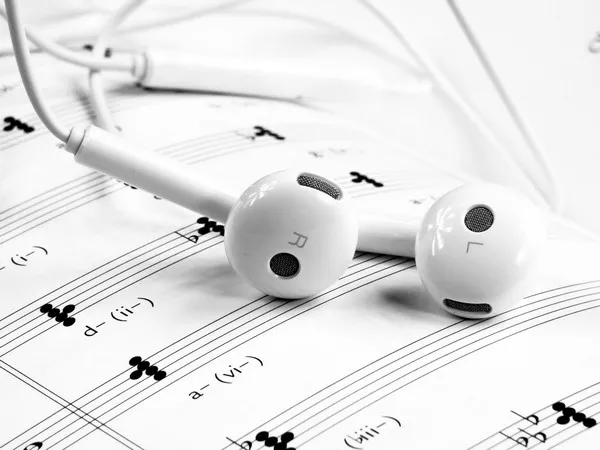In the realm of productivity enhancement, music is a powerful tool that can significantly impact focus, motivation, and efficiency. The right melodies can stimulate our brains, foster creativity, and create an atmosphere conducive to getting tasks done. Understanding the diverse range of music types that can elevate productivity is crucial. This article will delve into eight types of music known to boost productivity across various work settings and tasks.
1. Classical Music
Classical compositions have long been touted for their ability to enhance concentration and cognitive abilities. The absence of lyrics coupled with structured compositions can help reduce distractions, making it an ideal choice for deep work sessions. The works of renowned composers like Mozart, Beethoven, or Bach, with their soothing yet stimulating melodies, have shown to increase productivity and accuracy in tasks requiring attention to detail. The balanced tempo and intricate harmonies often associated with classical music can aid in fostering a productive mindset.
2. Ambient Music
Characterized by its atmospheric and subtle tones, ambient music creates a tranquil environment that promotes relaxation and focus. With its minimalist approach and repetitive patterns, ambient music can help drown out background noise without causing distraction. This type of music is especially effective for individuals seeking a calming backdrop for tasks requiring prolonged concentration, such as writing, coding, or studying. Artists like Brian Eno or Sigur Rós are known for producing ambient music that can enhance productivity by inducing a state of deep concentration.
3. Instrumental Jazz
Jazz music, particularly instrumental jazz, has a unique ability to stimulate creativity and problem-solving skills. The improvisational nature of jazz encourages divergent thinking and innovation. The rhythmic complexity and improvisation in jazz compositions engage the brain, fostering a fluid thinking process beneficial for brainstorming sessions or tackling complex tasks. Musicians like Miles Davis or John Coltrane showcase the versatility of instrumental jazz, making it a suitable choice for individuals seeking a dynamic and creative environment to enhance productivity.
4. Upbeat Pop Music
For tasks that require energy and repetitive actions, upbeat pop music can be a valuable productivity booster. Its catchy tunes and lively rhythms have the potential to uplift mood and motivation, making routine or monotonous tasks more enjoyable. The positive lyrics and high tempo in pop music can serve as a stimulant, increasing productivity and efficiency in activities like exercising, data entry, or manual work. Popular artists like Pharrell Williams or Katy Perry offer music that’s both energizing and motivating, aiding in maintaining a productive workflow.
5. Nature Sounds and White Noise
While not conventionally classified as music, nature sounds and white noise play a significant role in creating an environment conducive to productivity. Sounds like flowing water, raindrops, or rustling leaves mimic natural environments, promoting relaxation and reducing stress levels. White noise, such as the steady hum of a fan or ambient sounds from nature, can mask distracting noises, enhancing focus and concentration. These auditory stimuli are beneficial for individuals working in noisy environments or those seeking a subtle background to boost productivity without the distraction of melody.
6. Film and Video Game Soundtracks
Soundtracks from films and video games are designed to evoke emotions and enhance storytelling, making them a powerful tool for boosting productivity. These compositions are crafted to match specific moods and scenarios, making them versatile for various work settings. Whether it’s the epic scores of Hans Zimmer or the immersive soundscapes of video games like “The Legend of Zelda,” these soundtracks can evoke a sense of urgency, adventure, or focus, aligning with tasks that require sustained attention or creative problem-solving.
7. Binaural Beats
Binaural beats utilize specific frequencies to synchronize brainwaves and induce a desired mental state. By playing slightly different frequencies in each ear, binaural beats aim to influence brainwave patterns, promoting relaxation, focus, or even increased alertness. These beats are often paired with ambient music or nature sounds and are believed to aid in achieving a state of deep focus or relaxation, making them suitable for meditation, studying, or tasks that require mental clarity and concentration.
8. Baroque Music
Baroque compositions, characterized by their intricate melodies and structured patterns, offer a unique blend of stimulation and relaxation. The consistent rhythm and moderate tempo in Baroque music can induce a state of focused relaxation, making it an excellent choice for tasks that demand sustained attention. The works of composers like Vivaldi or Handel are known for their precision and rhythm, providing a conducive environment for detailed work or tasks requiring analytical thinking.
In Conclusion
The impact of music on productivity is undeniable, and the diverse range of music types available allows individuals to tailor their auditory environment to suit their specific work requirements. Whether it’s the calming melodies of classical music, the ambient tones of nature sounds, or the energizing beats of pop music, understanding the nuances of different music genres can significantly enhance productivity across various tasks and work settings. Experimenting with these eight types of music can help individuals discover the most effective soundtrack to elevate their productivity and optimize their work performance.


























